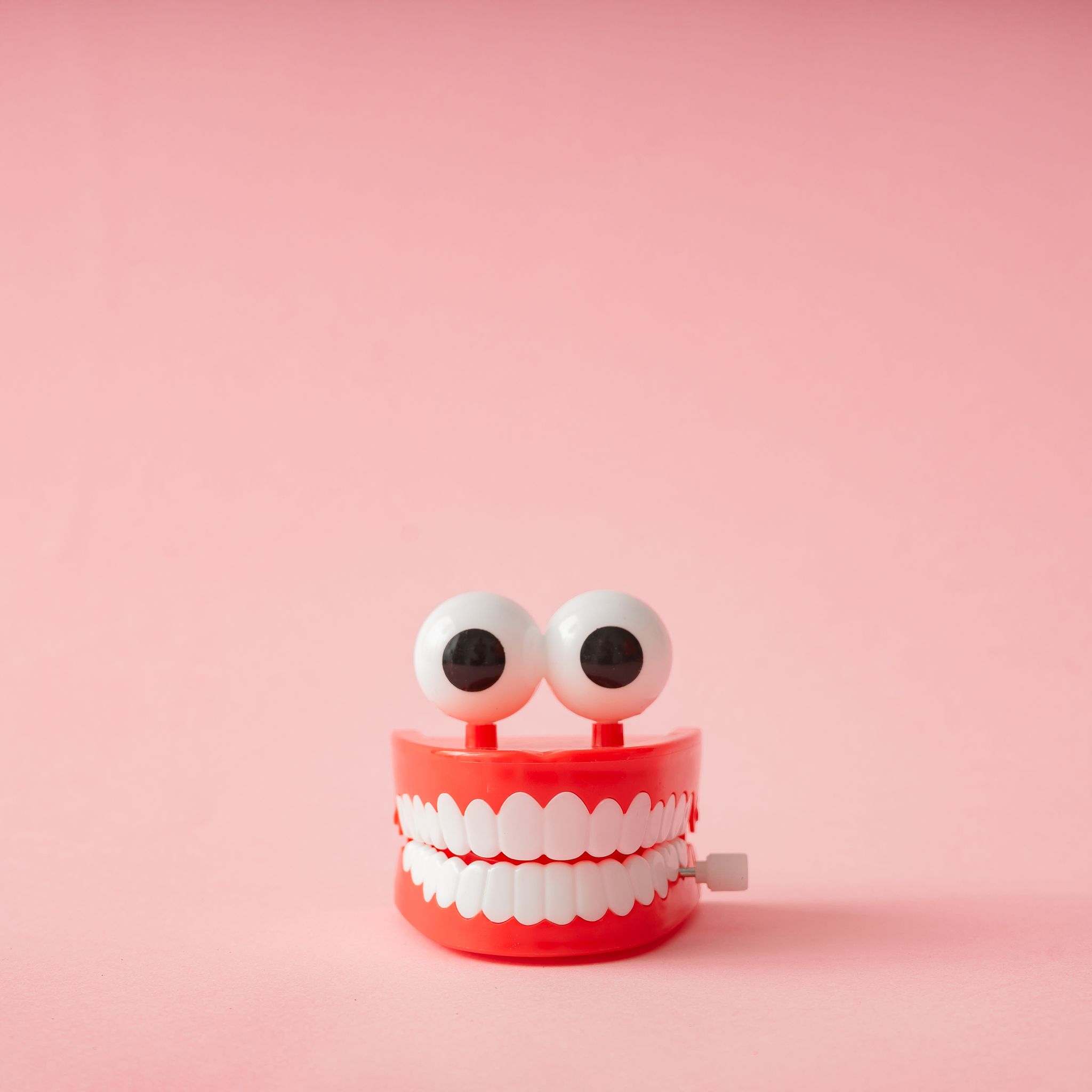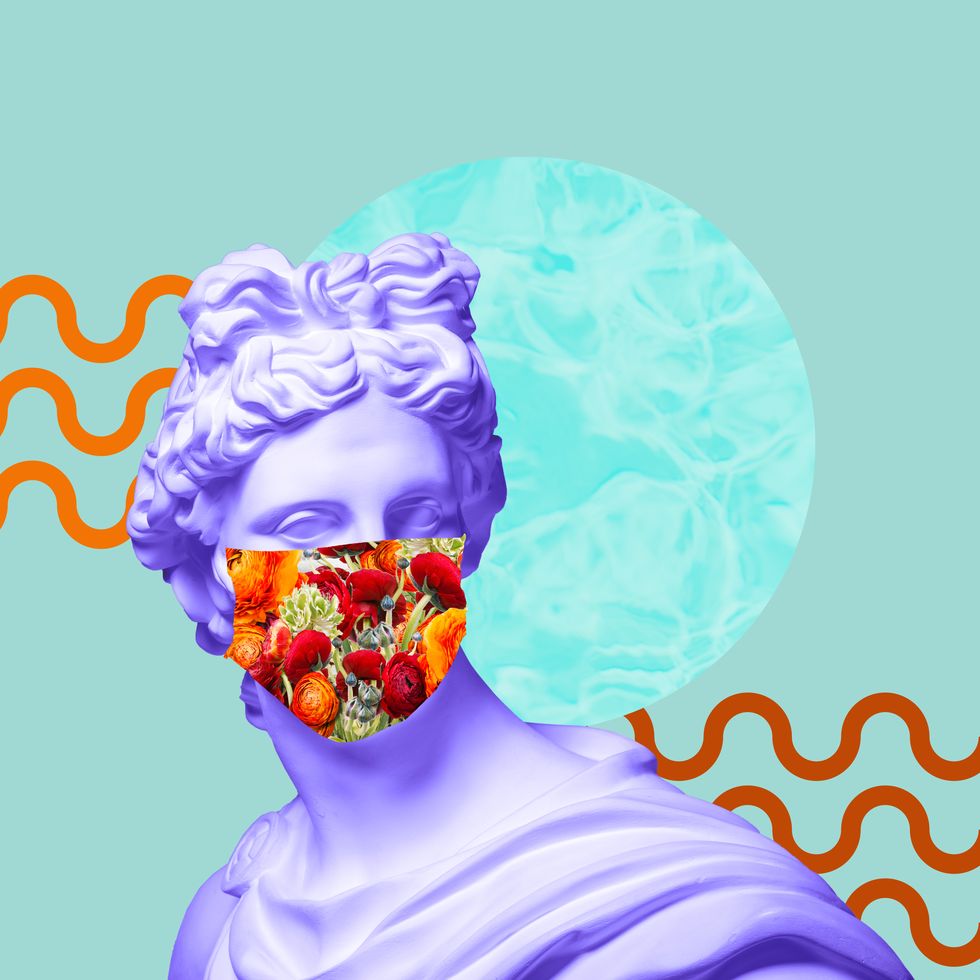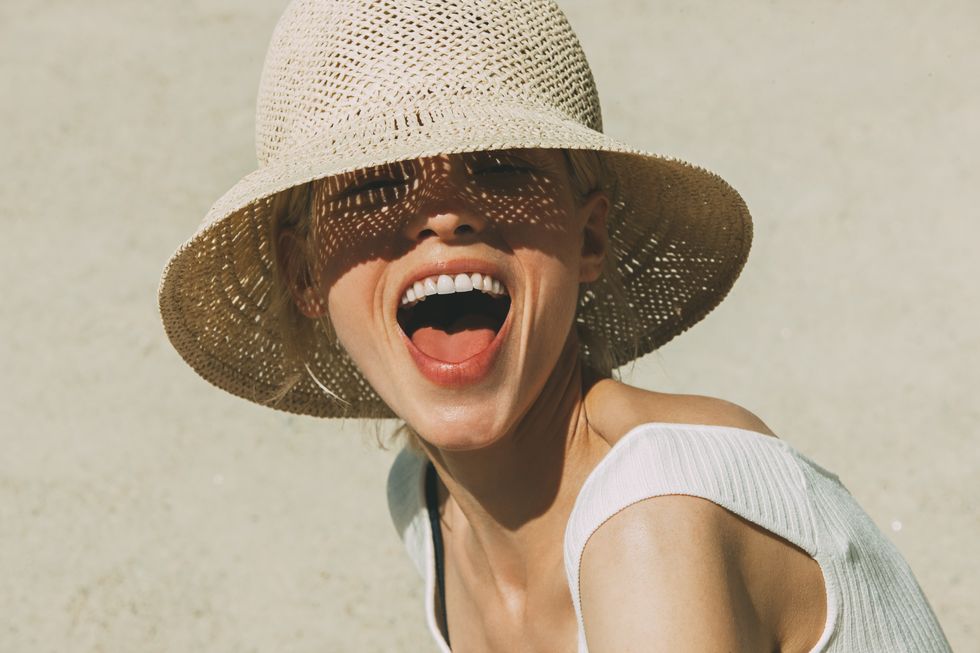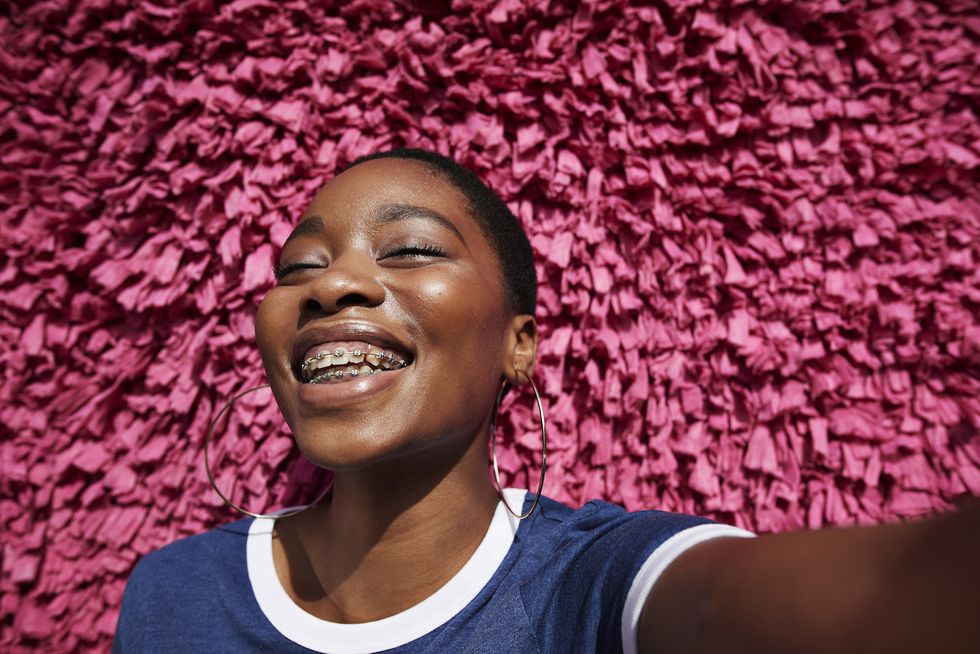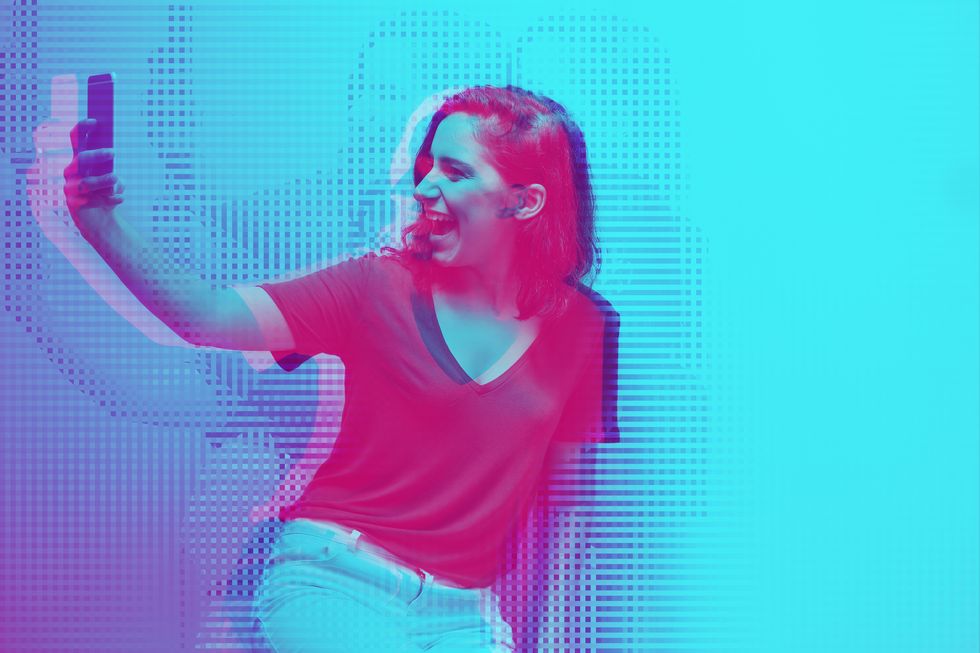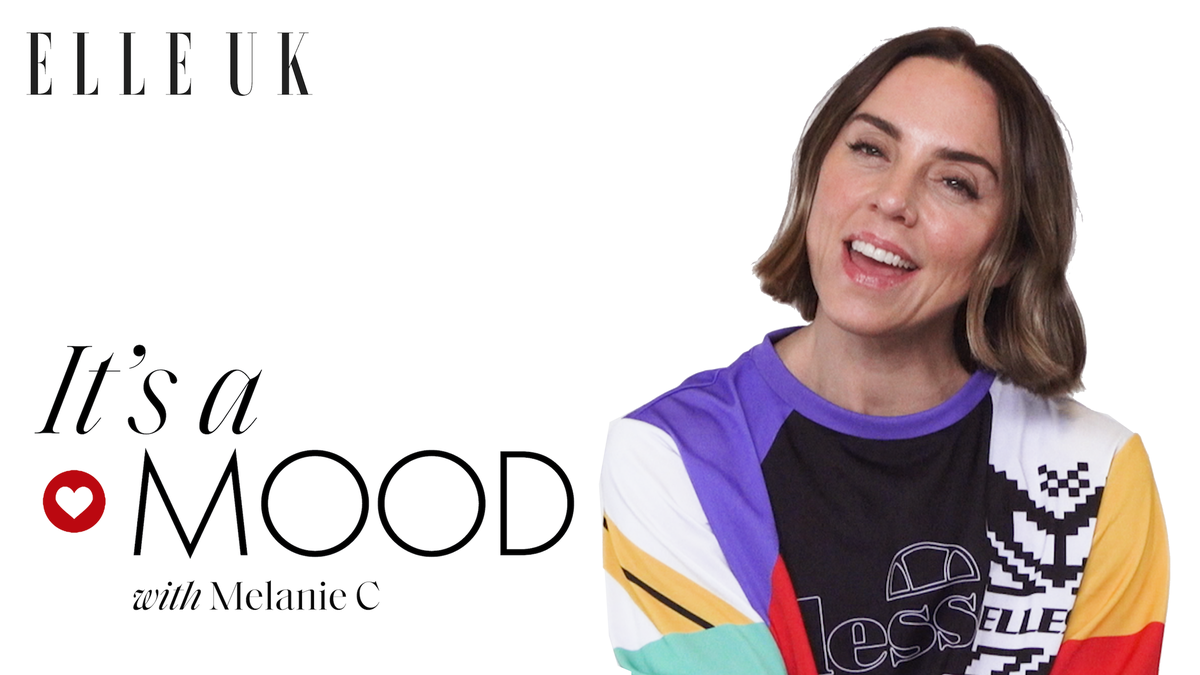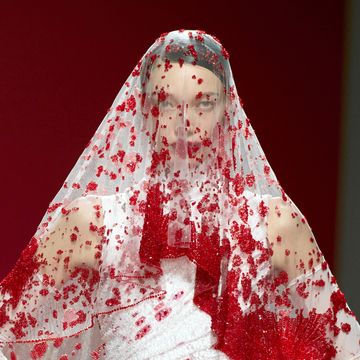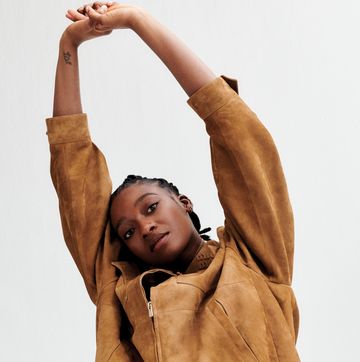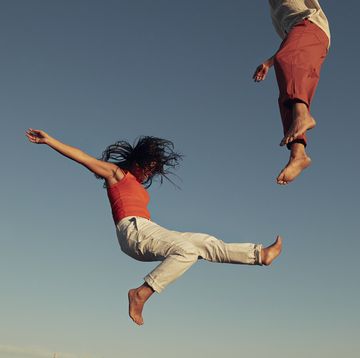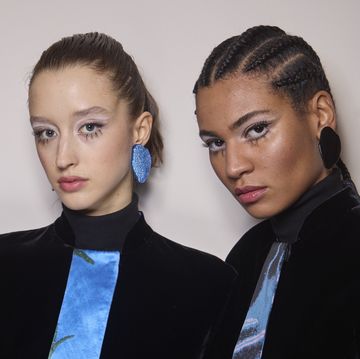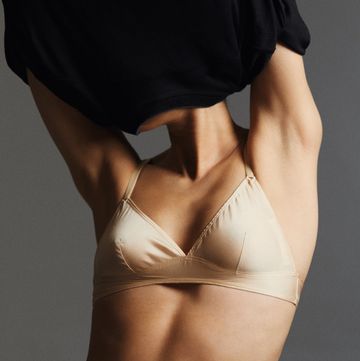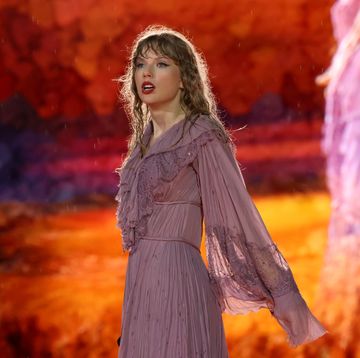You don’t have to be a comedian to realise that lockdown has had a weird effect on our sense of humour. Let’s be clear. No matter how cheery you are usually, lockdown life hasn't been a barrel of laughs for anyone. When we're facing a death toll in excess of 120,000 and the national debt is at the highest it's been for seven decades, it’s hardly a time for jokes. Levity of any kind can feel insensitive. It can even seem as if we should be serious and grown-up permanently from now on, seeing as Covid-19 itself is so wildly, unendingly unfunny.
But what about the trivial things we’re missing from everyday life that make us chuckle? Are we just supposed to forget about those? You know what I’m talking about. The situational laughs from the usual, idiotic, everyday moments. Like the colleague who used to leave the office at the end of the day with a cheesy 'To be continued…' (you have to say this in an Alan Partridge voice to really get a flavour of this person). Or the woman you saw every day on the way home from work who insisted on standing on the wrong side of the escalator, making everyone walk around her. Even the amount of laughs we can get from watching TV has been affected, with the filming for many shows that have brought us joy recent years, like Derry Girls and the Great British Bake Off, having faced postponements in the last 12 months. It would seem that humour as we knew it, like everything in the pandemic, has been put on hold for the foreseeable.
I was one of many comedians reluctant to give up on real life — and live performance — at the beginning of the pandemic last year, clinging on to every gig of 2020. The last time I went ‘out out’, I was hosting a comedy gig for an audience of around 200 not-particularly-healthy-looking people, packed into a sweaty school hall. As the night wore on, I could see the already-weak hand sanitiser jokes wearing thin and the truth starting to dawn: it's not the time for one-liners. The following week we went into a national lockdown.
The past year has undoubtedly changed what we find funny. How could it not? If you’re used to resorting to black humour — something I usually love — then you’re out of luck. Everything is already too bleak to joke about. It’s also not a great time for observational comedy either. In lockdown we all notice the same things at the same time and we’re bored of them sooner.
Remember when early in the pandemic everything from baking banana bread to waist-up Zoom workwear turned into an instant cliché overnight? It’s hard to say anything that feels like an original or surprising insight because it’s all one long Groundhog Day. Plus, for comedians there’s an awkwardness around using the pandemic for material. You can’t not reference it because we’re all living through it. But if you talk about it, you feel like people are thinking, 'Oh, please, change the subject and give us some escapism'.
As a result, two kinds of pandemic humour have emerged. One is warm, gentle and expansive: think podcasts, socially distanced TV chat shows, quiz shows. It’s a kind of gentle humour based around conversation, connection and warmth and is definitely not about racing to a mic-drop punchline or saying the thing that no-one else dares say. This is not a time to be edgy, aggressive, cruel or sarcastic. We've been left with a hesitation around what it means to be 'entertained'. We think we want to laugh and be cheered up. But when it comes down to it… we actually don’t really feel like, nor have much energy for, a belly laugh. Above anything, we just want to feel part of something.
It's this type of cosy, intimate humour which works well on podcasts, with Spotify reporting that listening figures have doubled in the past 12 months. Podcasts have enabled us to eavesdrop on others’ conversations at a time when we haven't been able to do it in real life. On her podcast Funny Mummies, stand-up Hatty Ashdown talks to other comedians about lockdown. In one episode, Athena Kugblenu spoke about the joy that is Regé-Jean Page’s physique on Bridgerton while in one live recording Ashdown's co-host Gemma Beagley had to go off air to help her son who'd trapped himself inside a bin lid. She released him by applying washing up liquid. I only have to picture this to start laughing again. This is the kind of humour we can all get on board with right now: domestic slapstick with a happy outcome. (No small children were harmed in the releasing of the bin lid.)
The second kind of humour is a bit more spiky but it’s also harmless at heart: fleeting, weird memes and TikTok videos which suddenly become the talk of every Whatsapp conversation and chat show for a day and just as quickly disappear. When memes go viral, they give us the permission we seek: everyone else is laughing so it must be 'safe' to laugh. The Jackie Weaver call. The fly in Mike Pence’s hair. Actor Luke Millington-Drake’s glorious impressions of Nigella Lawson and Keira Knightley. Instagram star Jordan Firstman pretending to be the Pfizer vaccine on the phone to its mum after it was approved. Actor Daisy May Cooper’s anarchic Instagram videos. Tika The Iggy, the fashion-mad Italian greyhound, who says 'Love it, couldn’t wear it'. These little moments of silliness and frivolity give us a moment of respite. They’re satisfying precisely because they’re short, simple and guilt-free.
But, what about when we get out of lockdown? Will our sense of humour have changed? I think it will be sharpened, ready for action and, at its core, eager. We're going to want to make up for all the laughs we’ve missed. We'll only have to be in our friends' company for five minutes to crease each other up. We'll be easy and generous with our laughter, wanting to put cautious, careful 'pandemic humour' behind us.
If anything, comedy gigs will be louder, more raw and more outrageous once we're back in the same room. There will be a real hunger for things to be really, truly, raucously hilarious and to reflect our newfound freedom.
The laughs I personally miss the most at the moment? The ones that happen when you are being incredibly stupid. With old friends. And with my sister, who I haven’t seen since the summer. It’s just not the same over the phone. Chatting on group call with friends or in a one-to-one over Zoom with dodgy WiFi is like trying to get banter going while using a walkie-talkie. (‘Your eyebrows look like Chewbacca’s. Over.’) Have I caught myself wanting to linger a little too long at the supermarket checkout, trying to prolong a rare social interaction with a human being I don’t live with? Tragically, yes.
So let this be over soon. We all need to laugh — and to hear the laughter of both loved ones and strangers — to remind us of who we really are.
Viv Groskop’s new book Lift As You Climb: Women, Ambition and How to Change the Story is out now.
Like this article? Sign up to our newsletter to get more articles like this delivered straight to your inbox.
In need of more inspiration, thoughtful journalism and at-home beauty tips? Subscribe to ELLE's print magazine today! SUBSCRIBE HERE
